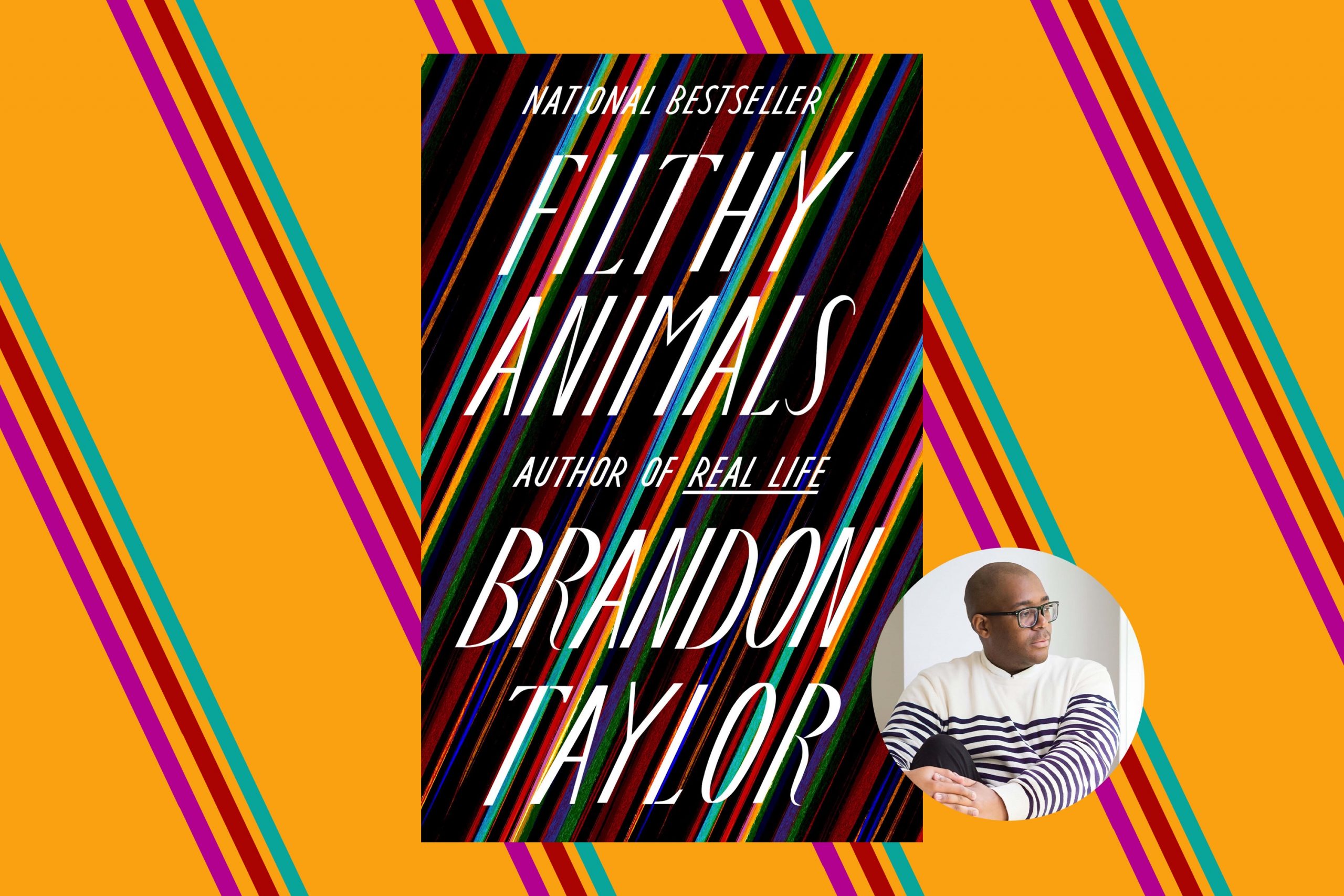Graphic by Christopher Ikonomou (Xe/He)
I recently read “Filthy Animals” by Brandon Taylor, which was released last year in 2021. I’d been looking to read more explicitly queer novels, ones that explored themes outside traditional YA themes. “Filthy Animals” is an exploration of queer sexuality and masculinity, a book that seems to understand the contradictions between all levels of queer identity. It is a book that aims to explore generational trauma, the past haunting its characters like an ambivalent ghost where the characters crave an intimacy they haven’t before.
I read the book through the app, Libby, which is powered through your local library. The book wasn’t very long; I managed to get through half of it by the fifth day of my loan. The book itself is not told through a traditional chapter lens, but rather, it is a book of short stories with intertwining themes of sexuality, intimacy, and masculinity. A few stories in the book included recurring characters, a trio named Lionel, Sophie, and Charlie. Other stories were about different people across different ages, such as a woman enjoying her first lesbian relationship or teenagers letting their hormones take control over them. It’s a powerful read, and I recommend it to people looking for something outside the typical queer YA novel.
“Filthy Animals” also uses the American Midwest as its backdrop, setting itself amidst some of the more conservative states (an interesting choice). The book is overall a slice-of-life, and shows queerness as glimpses of people that could be real and how they’re affected by their everyday realities — everyday realities that can happen to any of us.
Taylor does an amazing job with his descriptions. They are concise but illuminating, and motifs of animalistic desire for intimacy and sex are sprinkled throughout the book. The entire book is about sex; not the physical act of sex but about what sex represents, especially in the context of queerness, where sex can be seen as both liberating and oppressing, a soft dance or a lustful explosion of repressed emotions.
Taylor questions queer masculinity through the lens of Lionel and Charlie, asks us to examine the significance of a relationship through Charlie and Sophie, and the struggle to finally allow yourself comfort in your sexuality in the short stories like “Anne of Cleves.” His language is poignant but not overly decorated, making “Filthy Animals” an easier read. Yet Taylor does not compromise his questioning of the uncomfortable and the forever-shifting of queerness.
My critiques of the book are very minor, as it was one of my favorite reads of 2022. For example, I wish the chapters were more coherently placed in line with the theme of the story. I know some of the stories were written and published in other places, but sometimes the book felt more like a collection of stories rather than a cohesive narrative of queerness. Also, I wish the author discussed masculinity in terms of non-traditional masculinities, as opposed to just masculinity in terms of cis gay and bi men. The book stays away from the topic of gender, aside from one mention of nonbinary in the first chapter of the story, “Potluck.” I think Taylor could’ve really benefited in his discussion around masculinity by including stories that aren’t cis-centered, especially because there’s a plethora of different MLM experiences out there for trans men and transmascs. I also think the book could’ve included more stories about lesbian and bi women, especially because “Anne of Cleves” is dedicated to discussing the harms of compulsive heterosexuality, particularly for queer women who are forced to be with men they aren’t necessarily in love with because of societal pressures (it is a great story about that).
I highly recommend the book. I took so much pleasure in reading it, and I think you will too, especially if you’re the type of person looking for something more grounded in reality and enjoy the casual slice-of-life read.
Credits:
Author: Judah C (They/Them)
Artist: Christopher Ikonomou (Xe/He)
Copy Editors: Emma Blakely (They/She/He), Bella (She/They)

